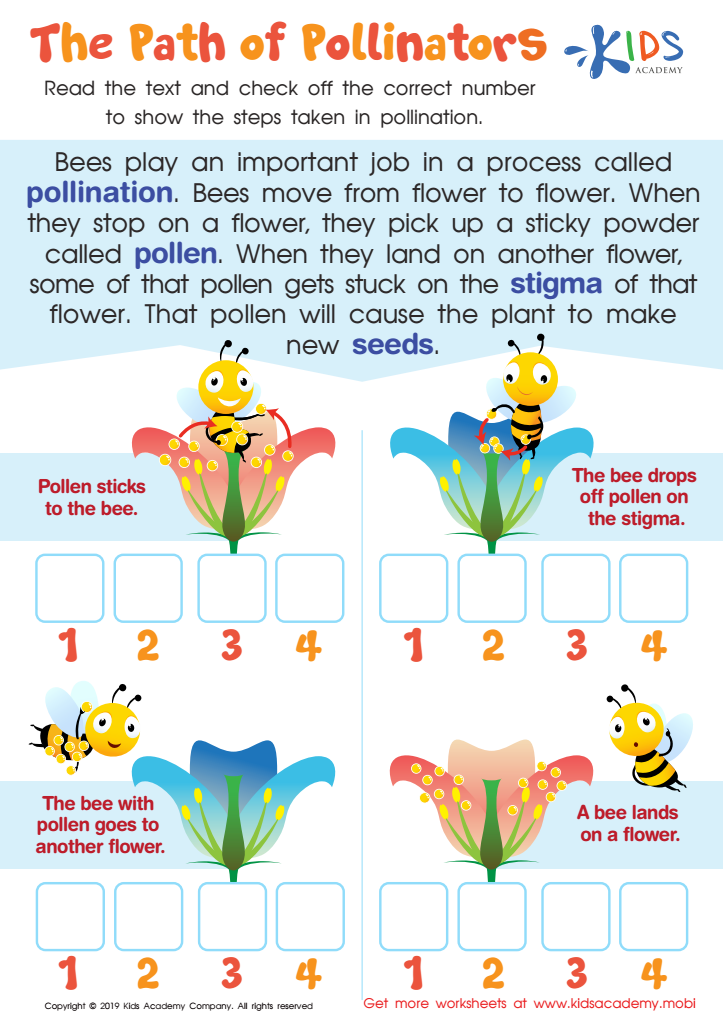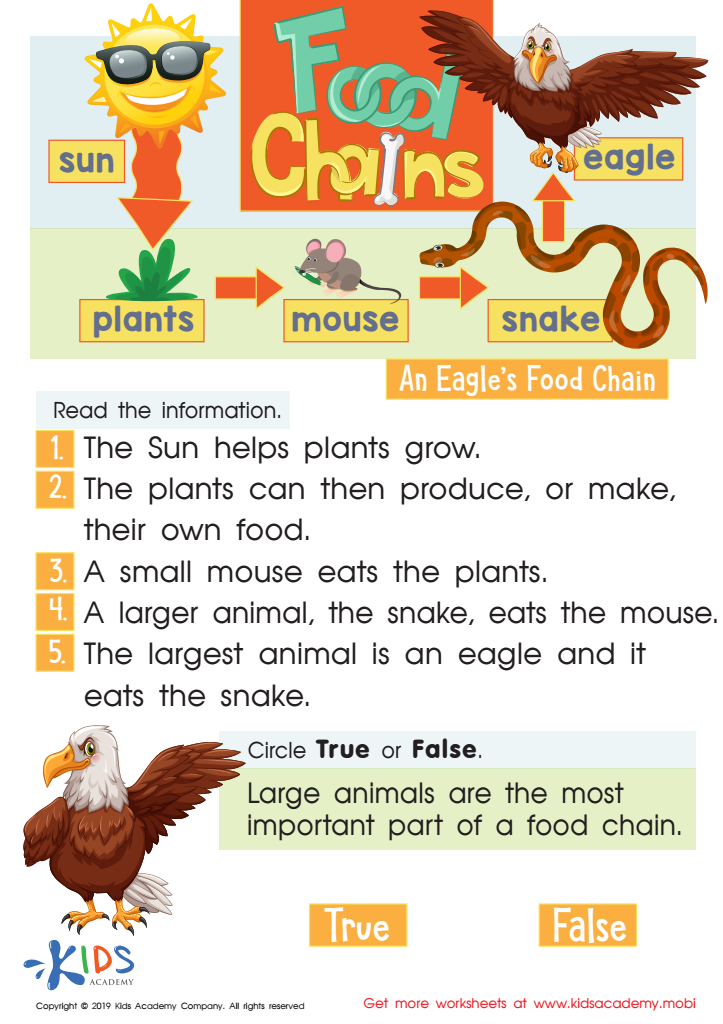Learning about ecosystems Normal Animals Worksheets for Ages 5-8
3 filtered results
-
From - To
Discover our engaging "Learning about Ecosystems Normal Animals Worksheets" designed specifically for children aged 5-8! These worksheets provide a fun and interactive way for young learners to explore the fascinating world of ecosystems and the animals that inhabit them. Each activity encourages critical thinking and enhances comprehension of how different species interact within their environments. Whether identifying animal habitats, understanding food chains, or recognizing the importance of biodiversity, your child will develop a solid foundation in ecological concepts. Perfect for home or classroom use, our worksheets make learning about nature an enjoyable adventure! Explore the wonders of ecosystems today!


Pollinator Positions Worksheet


The Path of Pollinators Worksheet


Food Chains Worksheet
Teaching young students about ecosystems and normal animals is crucial for their cognitive and emotional development. At ages 5-8, children are incredibly curious and absorbent, making this an ideal time to introduce them to the intricacies of the natural world. Learning about ecosystems helps children understand the interconnectedness of living things, promoting empathy and respect for all forms of life. It lays the groundwork for responsible and environmentally conscious citizens.
Understanding normal animals and their habitats fosters observational skills and critical thinking. Children learn to recognize the diversity of species, their roles in the ecosystem, and the importance of biodiversity. This not only nurtures scientific inquiry but also promotes creativity as they explore nature through art and storytelling.
Moreover, ecological education can positively impact a child's mental and physical well-being by encouraging outdoor activities and a connection with nature. Such experiences can reduce stress and improve focus, ultimately benefiting their overall learning outcomes.
By investing in ecosystem education, parents and teachers empower children to appreciate the environment, thus instilling values of conservation and sustainability from a young age. This knowledge equips future generations to tackle environmental challenges more thoughtfully and effectively.
 Assign to My Students
Assign to My Students




















